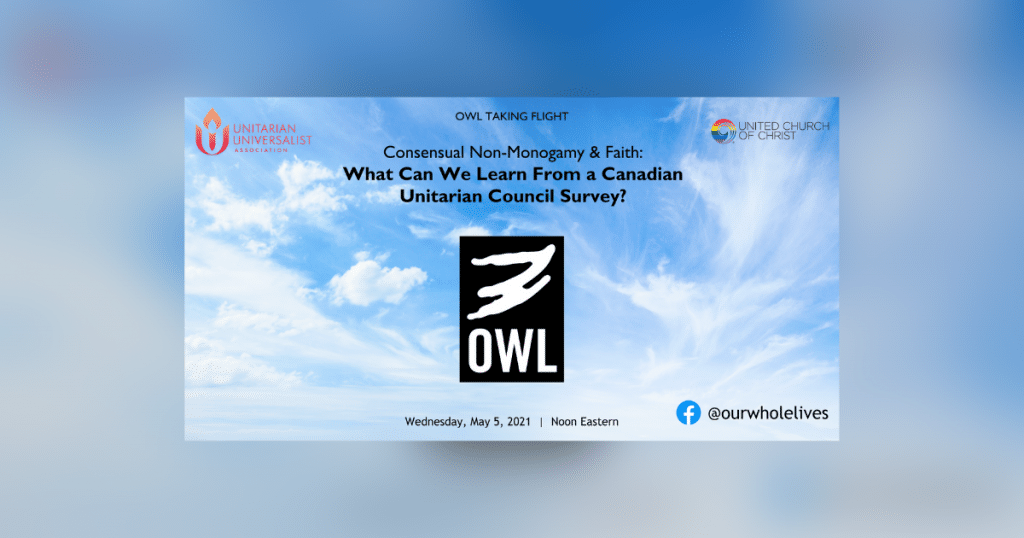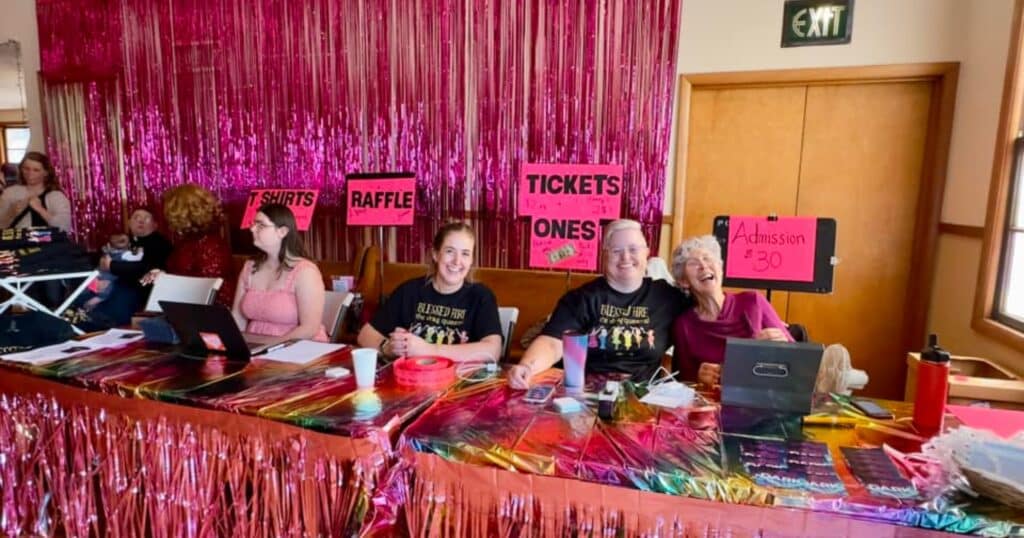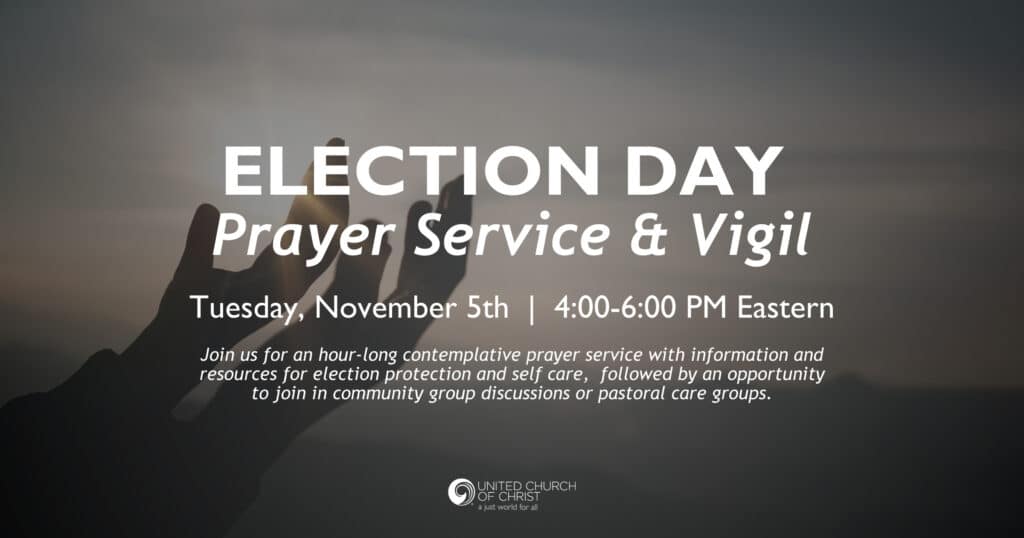Focus is on consent, welcome as church studies polyamory
“In the United Church of Christ we say often, ‘No matter who you are or where you are on life’s journey, you’re welcome here,'” said Amy Johnson. “…Do we really mean that?”
She was talking about something not often spoken of in church: committed romantic relationships involving more than one person.
Those relationships — and welcoming the people who are in them — were the topics of a May 5 webinar, “Consensual Non-Monogamy and Faith.” Johnson, the UCC’s minister for sexuality education and justice, was its moderator.
The one-hour discussion focused on a study of polyamory by the Canadian Unitarian Council. The webinar was the latest in a monthly series on sexuality education presented jointly by two U.S. denominations: the UCC and the Unitarian Universalist Association. It can be viewed now on YouTube.
‘Ethical polyamory’
The executive director of the Canadian church, Vyda Ng, said two things prompted the study. “One of our ministers came out as being polyamorous … and that created a little bit of a reaction,” she said. “At the same time, we had been getting questions and requests from our ministers and our lay-trained chaplains about how to handle requests for self-created rites of passage for polyamorous people.”
“Polyamory remains a difficult concept for some to understand or accept.”
Report of a Canadian Unitarian Council task force, May 2020
The result was a two-year task force study. Among other things, its 21-page May 2020 report:
- Defined polyamory as “the philosophy and practice of loving more than one person at a time, romantically and/or sexually, and doing so with honesty and integrity.”
- Called polyamory a “general term” encompassing “many forms of relationships.” “Some people we spoke with consider polyamory to be an identity, like gender and sexual orientation,” the report said. “Others think of it as a lifestyle or behavior choice. There is not a consensus about this within the community.”
- Emphasized that “ethical polyamory” involves consent, covenant and respect among all people involved.
- Recommended that Canadian Unitarian-Universalists “not just tolerate but welcome, nurture, and support polyamorous people and their families as integral parts of our spiritual communities.”
- Noted that Canadian law prohibits rites that bless polyamorous relationships.
- Acknowledged that “polyamory remains a difficult concept for some to understand or accept.”
Already present in the church
“Polyam people and their families have always been here,” said Shoshanna Green of the Unitarian Church of Montreal, a task force member who summarized the report during the webinar. “They’ve always been in our culture, they’ve always been in our society, and they’ve always been in our UU congregations, whether or not they were public about it, whether or not anyone outside their families knew.”
The webinar also featured Gabriela de Golia, who is preparing for ministry in the UCC as a member in discernment in the Southern New England Conference. She summarized a paper she wrote on polyamory for a UCC history and polity class at Union Theological Seminary.
Some polyamorous people “don’t feel supported enough to admit their relationship status within UCC contexts.”
Gabriela de Golia, student, Union Theological Seminary
She admitted her research was limited, involving just 95 UCC respondents. She nonetheless concluded that consensual non-monogamy “is an existing and significant reality in the UCC.” She also said many of the polyamorous people she spoke to “don’t feel supported enough to admit their relationship status or share their interest in these topics within UCC contexts.”
Therein lies the challenge, said the Rev. Michael Crumpler, a UCC minister who directs LGBTQ and multicutural programs for the UUA. “The main goal of a faith community is integrity and love and openness and acceptance,” he said. Recognizing that consensual non-monogamy exists, he said, “is another opportunity to practice welcome” and “begin to have language to support people, which is the whole point of why we come together in faith communities.”
A justice issue
The Canadian report concluded that “affirming the validity of polyamory and welcoming polyamorous people is both a justice issue and a religious duty.”
“Whatever form it takes, ethical polyamory is fundamentally grounded in covenant and in mutual respect among all partners,” Green said. “Ethical polyamory is not the same thing as cheating, it’s not the same thing as promiscuity, it’s not the same thing as authoritarian, patriarchal polygamy. And, obviously, not every polyam relationship lives up to the ideals of ethical polyamory, any more than every monogamous relationship lives up to the ideals of ethical monogamy.
“But every intimate relationship has the potential to bring joy, spiritual growth, and mutual support in daily living.”
Related News
‘Blessed Are the Drag Queens’: Oregon church event celebrates love and acceptance
Amid harmful anti-trans and nonbinary legislation and political messaging, Bridgeport United...
Read MoreUCC to offer Election Day Prayer Service and Vigil
On Election Day, Nov. 5, join the Rev. Karen Georgia A. Thompson together with United Church...
Read MoreGoing beyond the blessing: Churches emulate St. Francis’ care for animals
https://www.youtube.com/watch?v=lu3LYwhLxCo UCC News presents a video news story on the...
Read More


